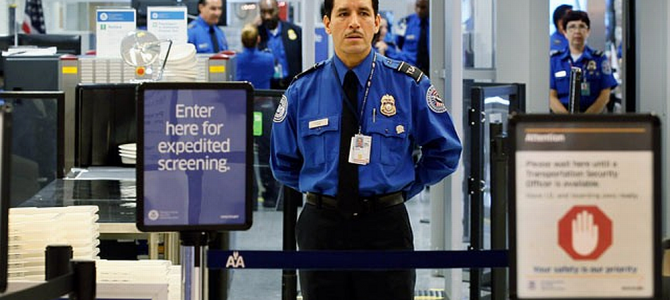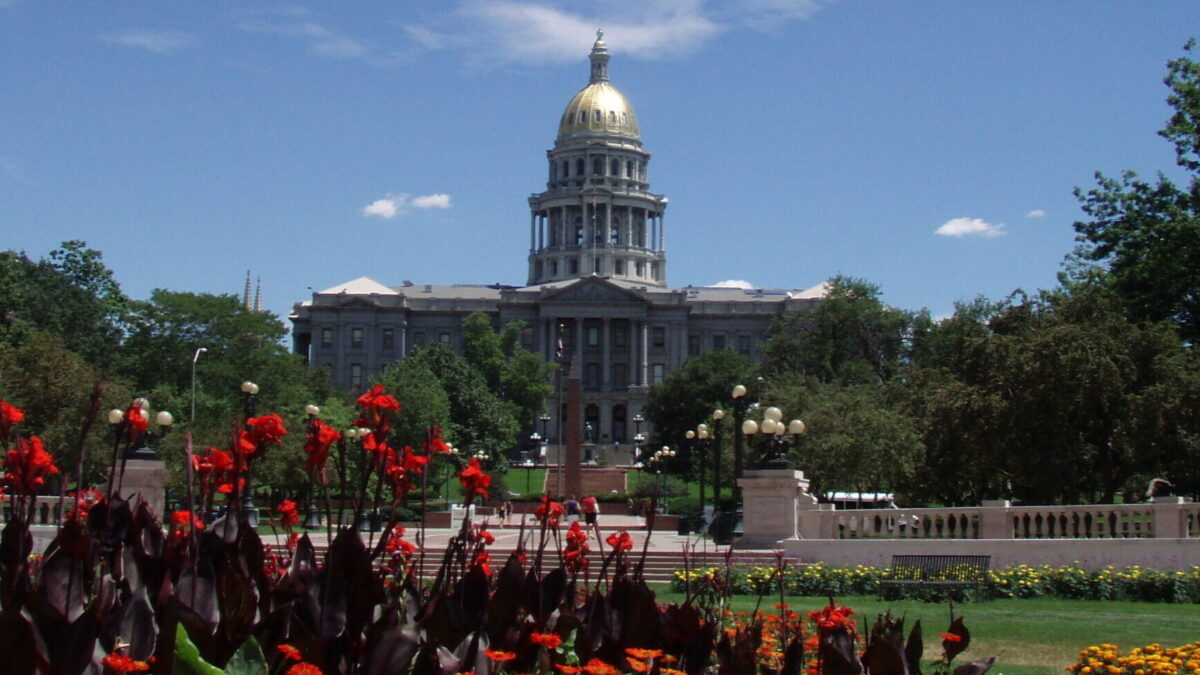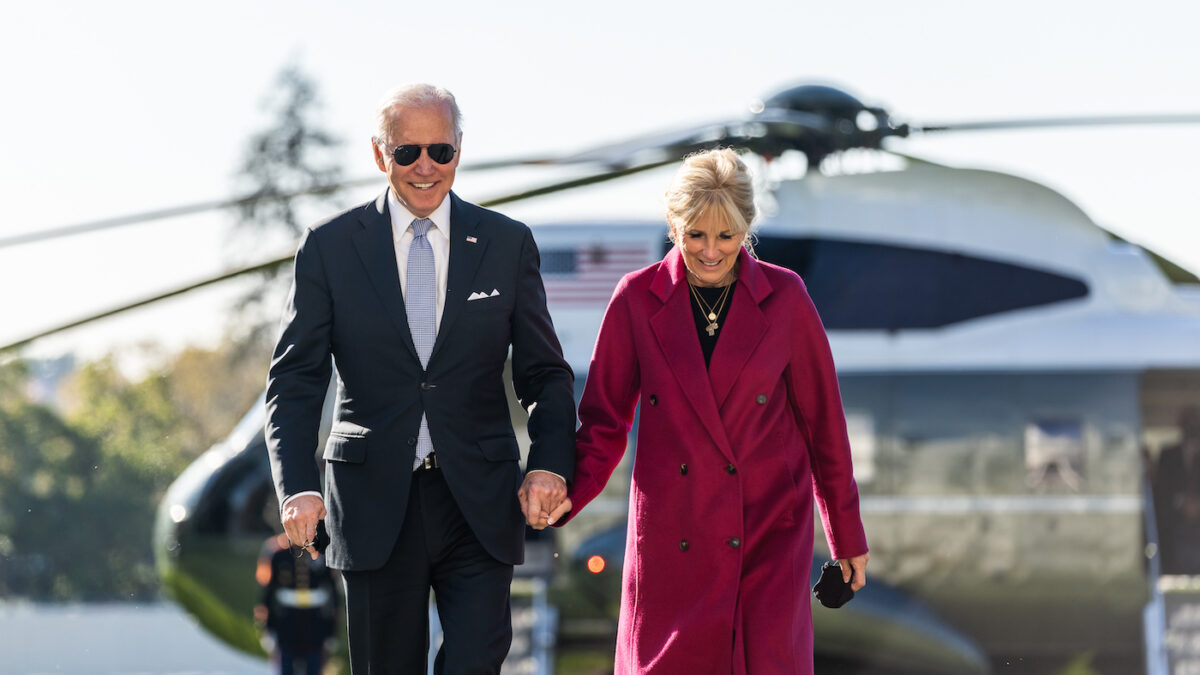
Proponents of the budget deal struck by Republican Rep. Paul Ryan and Democratic Sen. Patty Murray have bragged that the deal reduces the deficit without raising taxes. As I noted earlier this week, the deficit-cutting claims are laughable since all the theoretical savings come in years 2022 and 2023 — Congress will gladly demand a spending increase today in exchange for a fake increase ten years from now. Unfortunately, the claim that the deal doesn’t raise taxes is equally preposterous.
Rather than straightforwardly admitting that the deal is a bad one and instead pitching it as the best way to avoid the blame for another shutdown, proponents are relying on silly word games in the hope that their target audience will be too dumb to know the difference. The deal, you see, raises revenue to offset the spending increases not from tax hikes, which are bad, but from “user fees,” which are totally not bad at all.
One of the “fees” that’s increased pertains to airline passenger travel. In 2001, Congress passed a law allowing the federal government to charge passengers a fixed amount per airline flight in order to pay for costs incurred by the Transportation Security Administration. These “passenger aviation security fees” cost the same regardless of the cost of your plane ticket, the number of miles you travel, or where the nice agent forcibly fondles you. The Murray/Ryan budget deal increases the fees from a minimum of $2.50 per one-way flight to $5.60 (or $11.20 for a round-trip ticket).
Why is it odd to call this a user fee (or a TSA abuser fee, given the amount of checkpoint groping that goes on) instead of a tax? Because it very closely resembles the federal gasoline tax. Like the TSA abuser fee, the federal gas tax of $0.184 per gallon is fixed and doesn’t vary based on the cost of gasoline. Like the abuser fee, which is used to fund activities used by air travelers, the gas tax ostensibly pays for things that cars drive on, like roads and bridges. And like the passenger fee, which is required to be used only to offset the costs of TSA’s security activities, the gas tax is directed to a special trust fund that prevents the money from being used for unrelated purposes.
But here’s how Ryan’s budget staff explain the differences between user fees and taxes:
What is a user fee?
The Congressional Budget Office (CBO) defines a user fee as “money that the federal government charges for services, or for the sale or use of federal goods or resources, that generally provide benefits to the recipients beyond those that may accrue to the general public. The amount of a user fee is typically related to the cost of the service provided or the value of the good or resource used. . . .” Why is a user fee different from a tax? People can decide whether to use a specific government good or service. In those cases, they agree to pay a fee to receive the benefit. If they do not use the benefit, they do not pay the fee. Taxes, on the other hand, must be paid regardless of whether the taxpayer wants the services that those taxes fund. CBO defines taxes as “funds collected from the public that arise from the government’s exercise of its sovereign or governmental powers.”
Using that rationale, the federal gasoline tax — the nature of which nobody disputes — doesn’t qualify as a tax either. Driving is voluntary, so it must not be a tax. The ostensible benefits deriving from gas taxes are roads, which are used primarily by people who drive gasoline-powered vehicles, so it must not be a tax. Ryan’s rationale fails to adequately explain why, exactly, the gas tax is a tax but the TSA ticket charge isn’t.
The rationale also fails when you take into account the characteristics of the ticket tax. According to Ryan, “the amount of a user fee is typically related to the cost of the service provided or the value of the good or resource used.” The TSA tax, however, doesn’t work that way. It’s a fixed fee that is completely independent of the cost or value of the plane ticket. House Budget Committee staff attempted to provide other reasons why this tax isn’t really a tax, but they were also convincing. As Ramesh Ponnuru of NRO noted, “That doesn’t read to me like an explanation of why the fee increase isn’t a tax hike on airline tickets. It reads to me like an attempt to justify a tax hike on airline tickets.”
In fact, the TSA ticket tax is a textbook example of an excise tax. According to the Internal Revenue Service, “Excise taxes are taxes paid when purchases are made on a specific good, such as gasoline. Excise taxes are often included in the price of the product.”
West’s Encyclopedia of American Law contains a similar definition:
A tax imposed on the performance of an act, the engaging in an occupation, or the enjoyment of a privilege. A tax on the manufacture, sale, or use of goods or on the carrying on of an occupation or activity, or a tax on the transfer of property. In current usage the term has been extended to include various license fees and practically every internal revenue tax except the Income Tax (e.g., federal alcohol and tobacco excise taxes).
There’s also little material difference between the TSA ticket tax and numerous other explicitly named taxes charged by airlines. Take, for example, this list compiled by Delta Airlines: Domestic Transportation Tax (7.5%), Travel Facilities Tax ($8.40), U.S. International Transportation Tax ($17.20).
The only significant difference between those taxes and the TSA ticket tax is that the creator of the TSA ticket tax was clever enough to call it a service fee instead of a tax. Thank goodness the authors of the 16th Amendment were honest enough not to refer to the proposal as a job holder fee.
Even Yuval Levin, who appears to cautiously endorse the Murray/Ryan deal and generally supports user fees as a substitute for taxes, wrote that “it’s certainly not unreasonable to describe such user fees as targeted taxes[.]”
If it walks like a tax, quacks like a tax, and sticks its grubby little fingers into your wallet like a tax, it’s probably a tax.
Had top Republicans pitched this deal as the best way to avoid blame for another shutdown (even it the shutdown was solely the fault of Democrats who refused to abide by the sequestration law President Obama signed in 2011), I would have been somewhat sympathetic. I still wouldn’t like the deal, but that rationale would at least have the benefit of being intellectually honest.
But Ryan and his allies in GOP leadership need to stop insulting the intelligence of their voters by expecting them to suddenly forget the meanings of certain words. GOP leaders have a serious and widening credibility gap with their base. Dishonest, Orwellian word games are only going to make matters worse.









